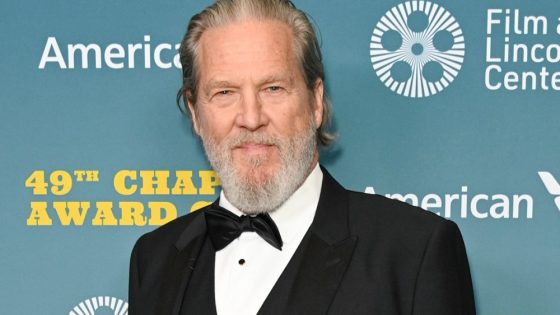Leonard Cohen and the Band very well may have landed in the Canadian Music Hall of Fame in any event, given their talents, but even the best artists have to get connected to the right people at the beginning of their careers to take flight.
That’s where Toronto’s Mary Martin came in. Martin died at age 85 last week of unknown causes in Nashville, where she spent the last half of her life. Her death on July 4 was announced by the Country Music Hall of Fame, which had bestowed an annual music industry honour to her in 2009.
“Time and again, Mary Martin spotted great talents and elevated their careers. Dylan & the Band, Van Morrison, Rodney Crowell, Vince Gill, Emmylou Harris and Keith Urban are just a few she helped,” said Kyle Young, CEO of the Country Music Hall of Fame, in a statement. “Mary’s unerring feel for songs and performers was legendary.”
Crowell, in an audio post on Instagram, hailed her as “one of the great musical minds, someone who did so much for all of us along the way.”
“She managed me when I was most unmanageable, but I loved her. She was smart as a tack.”
“Time and again, Mary Martin spotted great talents and elevated their careers. Dylan & the Band, Van Morrison, Rodney Crowell, Vince Gill, Emmylou Harris, and Keith Urban are just a few she helped. Mary’s unerring feel for songs and performers was legendary.”<br><br>—Kyle Young, CEO <a href=”https://t.co/W0HSlLMllW”>pic.twitter.com/W0HSlLMllW</a>
—@countrymusichof
‘I got off the bus with 60 bucks’
The Grammy Award-winning Martin’s legacy, in managerial and artist and repertoire roles over the decades, was one of initiative and drive in a male-dominated music industry, as well as being in the right place at the right time.
The first decade of her life after attending the all-girls Havergal College in Toronto, she would recount over the years, was one of fits and starts. There were attempts at post-secondary education at both the University of British Columbia and what is now known as Toronto Metropolitan University, as well as jobs ranging from waitressing to clerical work at an insurance company.
WATCH l Martin explains the now-legendary union of Dylan, the Band in 2015:
A love of music fired her passions, and she recounted for the Toronto Star in 2000 seeing the group that would become the Band playing in the taverns that dotted the city’s nascent rock ‘n’ roll scene near the Yonge and Dundas intersection.
“Those boys talked to each other musically,” she told the Star’s John Goddard. “They were the best band that we had ever, ever heard.”
In 1963, she decided to try her luck professionally in New York City. She landed a job in the office of Albert Grossman, then the manager of some of folk music’s biggest acts, including Peter, Paul and Mary, and Bob Dylan.
“I got off the bus with 60 bucks,” she told the Tennessean newspaper in 1985, reciting the Grossman office phone number all those years later.
Dylan eventually began to chafe at the restrictions of only playing acoustic and solo. He would plug in with assorted musicians at the Newport Folk Festival in Rhode Island in 1965, a divisive showing for many fans that Martin attended.
Martin remembered the group she saw in Toronto, then known as the Hawks.
The group’s origin story was propelled by the raucous American performer Ronnie Hawkins, who began playing Ontario bars in the 1950s, eventually with fellow Arkansas native Levon Helm in his band.
WATCH l Robbie Robertson (1943-2023) in his own words:
From the CBC archive | Legendary Canadian musician Robbie Robertson reflects on his career and craft as a songwriter. Robertson died Wednesday at the age of 80.
Robbie Robertson, a 16-year-old from Toronto, joined in 1959 and the rest of the members of what became the Band were found in southwestern Ontario in 1961-62: Rick Danko from Simcoe, Richard Manuel from Stratford and Garth Hudson from London. They eventually left Hawkins and decided to seek their fortune in the U.S., gigging in New Jersey just as Dylan was in need of a reliable and cohesive band.
Martin was “always so supportive” and “raising the Hawks’ flag around the [Grossman] office,” remembered Robertson in his 2016 memoir, Testimony.
‘A musical and artistic tastemaker’
With Martin’s prodding, as well as that of musician John Hammond Jr., the Hawks came into the Dylan team’s view.
The Hawks backed Dylan on a raucous world tour in 1966, including a British concert where a fan infamously shouted “Judas!” at the singer. But the Hawks soldiered through what Robertson later described as a baptism by fire.
They eventually secured a record deal, and rechristened as the Band by the time of their 1968 debut album, embarking on a career that would land them in the Rock and Roll Hall of Fame.
“Mary was a rather persevering soul. She kept pushing these guys the Hawks to me,” Dylan told Rolling Stone in 1969.

By that point, Martin had been gone from the Grossman office for about three years, striking out on her own. She had told Macleans in 1966 there were “about six or seven” Canadian acts that she wanted to help break out beyond the country’s borders.
One of those was an acclaimed poet looking to establish a career as a recording artist: Leonard Cohen.
Martin would arrange a meeting between the Montreal native and singer Judy Collins.
“Mary had been talking about Leonard for years,” Collins recounted in her 2011 memoir, Sweet Judy Blue Eyes. “I believed her when she told me that Leonard was talented.”
Collins would help build excitement for Cohen’s songs by releasing a cover of his now-legendary Suzanne, as well as one other song, on an album that came out a year before Cohen’s own debut album.
“Mary was a good friend to all of us, a musical and artistic tastemaker,” Collins wrote in her autobiography.
Martin would later work in positions at Warner Music and Mercury Records Nashville, among other record companies.
Aussie superstar Urban told the Tennessean in 2005 he always remembered an encouraging note from Martin early in his career.
“Out of all the people I shopped my music to in America, she was the only one who actually wrote back to me,” he said. “I thought about that letter a lot over future years. To me it meant, ‘Stick to your guns and be patient.'”
Martin would win her Grammy for her part in executive producing the 2002 Hank Williams tribute album Timeless, which featured artists ranging from Jack White, Beck and Sheryl Crow to her old acquaintance, Dylan.
A cause of death was not given in the statement by the Country Music Hall of Fame, which said Martin died on July 4.
“When I went into the business, people said I was too young,” Martin told the Los Angeles Times in 2002. “Well, I knew my instincts were good and I knew I cared passionately about music.”
Source Agencies




